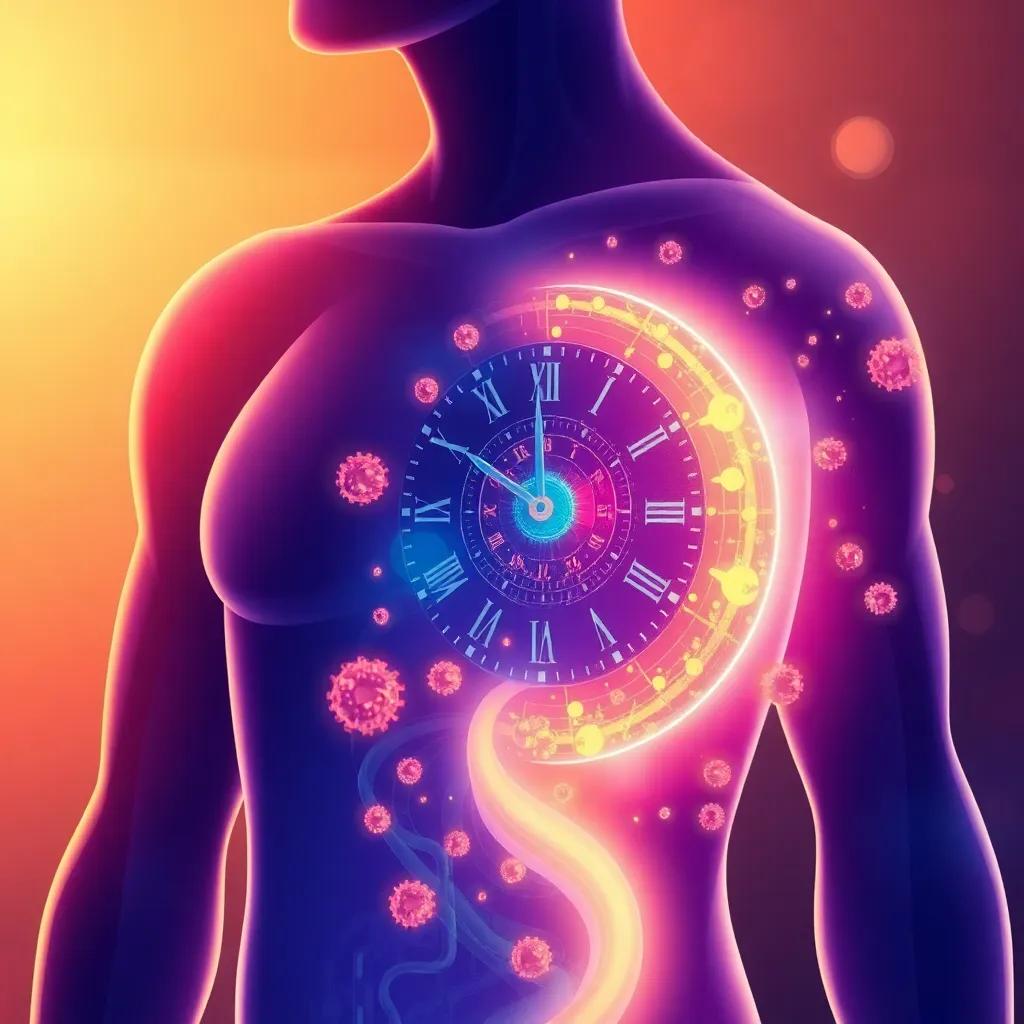Explore how circadian rhythms influence immune function, the impact of disruptions like shift work, and practical tips for aligning daily routines with natural rhythms for better health.
Discover how the timing of your daily activities can significantly impact your immune system’s effectiveness and overall health.
Introduction to Chronoimmunology
Chronoimmunology is an emerging field that studies how the immune system’s activity varies throughout the day and how these variations impact health and disease. The immune system, like many other physiological processes, is regulated by circadian rhythms—internal clocks that dictate the timing of various biological functions.
Research has shown that immune cells, such as macrophages, T cells, and B cells, exhibit circadian rhythms in their activity. For instance, a study published in Nature Immunology
found that the production of cytokines, which are crucial for immune response, peaks at certain times of the day. This suggests that the timing of an infection or vaccination could significantly affect the body’s ability to fight off pathogens.
The Role of Clock Genes in Immune Function
Clock genes, such as CLOCK
and BMAL1
, play a pivotal role in regulating the circadian rhythms of immune cells. These genes control the expression of other genes involved in immune response, ensuring that the immune system is primed to respond to threats at optimal times.
Disruptions in these clock genes, whether due to genetic mutations or environmental factors like shift work or jet lag, can lead to a weakened immune response. A study conducted by the University of Cambridge and published in Science
demonstrated that mice with disrupted clock genes were more susceptible to infections and had a reduced ability to clear pathogens.
Impact of Circadian Disruptions on Immunity
Modern lifestyles often involve activities that disrupt natural circadian rhythms, such as working night shifts, frequent travel across time zones, or exposure to artificial light at night. These disruptions can have profound effects on immune health.
For example, a study published in The Lancet
found that shift workers had a higher incidence of chronic inflammatory diseases, such as rheumatoid arthritis and inflammatory bowel disease. The researchers attributed this to the misalignment of circadian rhythms, which led to an overactive immune response and chronic inflammation.
Practical Tips for Optimizing Immune Health
Aligning daily routines with natural circadian rhythms can help optimize immune function. Here are some practical tips:
- Maintain a consistent sleep schedule: Going to bed and waking up at the same time every day helps regulate circadian rhythms.
- Exposure to natural light: Spending time outdoors during the day, especially in the morning, can help synchronize your internal clock.
- Meal timing: Eating meals at regular times and avoiding late-night snacks can support circadian rhythms.
- Exercise: Regular physical activity, particularly in the morning or early afternoon, can enhance immune function.
The Potential of Chronotherapy
Chronotherapy involves timing medications and treatments to coincide with peak immune activity. This approach has shown promise in various fields, including oncology, where the timing of chemotherapy can significantly affect its efficacy and reduce side effects.
A study published in Cancer Research
found that administering chemotherapy at specific times of the day improved treatment outcomes and reduced toxicity in patients with colorectal cancer. This highlights the potential of chronotherapy to revolutionize medical treatments by leveraging the body’s natural rhythms.
Future Directions in Chronoimmunology Research
The field of chronoimmunology is still in its infancy, but it holds great promise for personalized medicine. Future research could lead to the development of treatments tailored to an individual’s circadian rhythms, optimizing the timing of interventions for maximum efficacy.
As Dr. John Hogenesch, a leading researcher in circadian biology, stated in a press release from the University of Pennsylvania, Understanding the circadian regulation of the immune system opens up new avenues for treating diseases and improving health outcomes.
Conclusion
Chronoimmunology offers a new perspective on health and disease, emphasizing the importance of timing in immune function. By aligning our daily routines with natural circadian rhythms and exploring the potential of chronotherapy, we can optimize our immune health and pave the way for more effective, personalized medical treatments.




